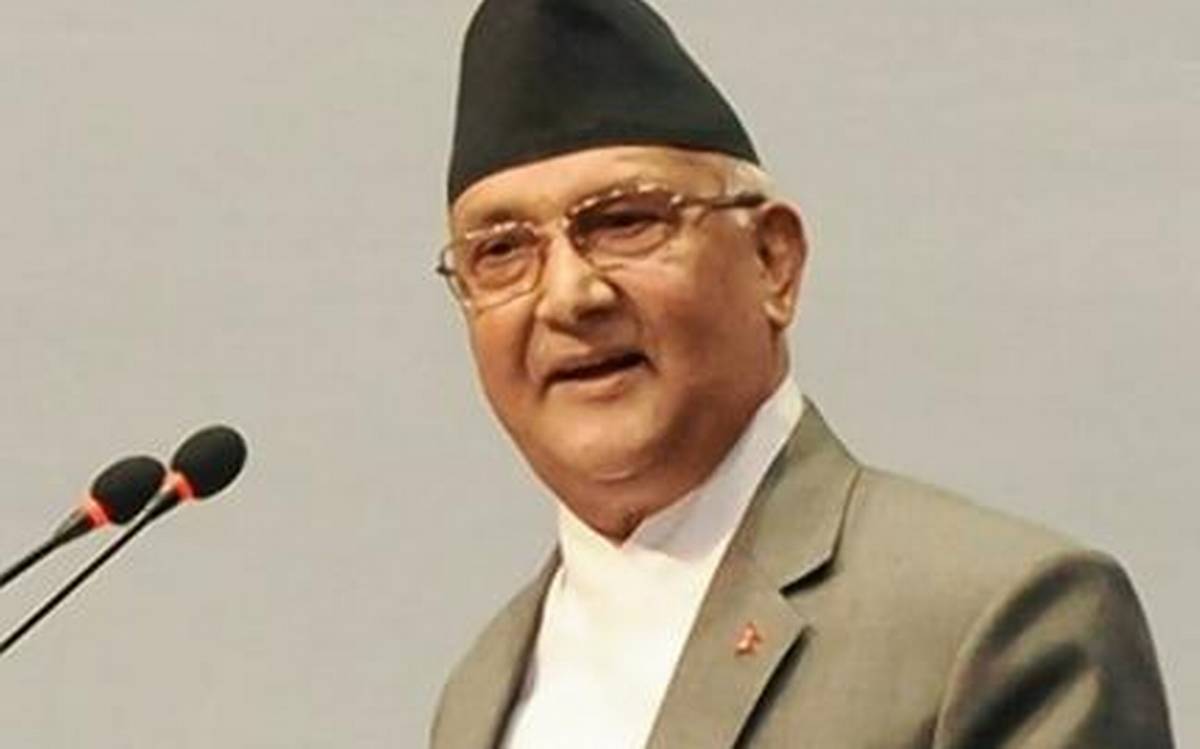KATHMANDU: Nepal’s ruling communist party has failed to address the intra-party rifts as Prime Minister K P Sharma Oli and NCP executive chairman Pushpa Kamal Dahal ‘Prachanda’ have failed to reach a consensus despite holding over half-a-dozen meetings in a week, a media report said on Thursday.
On Wednesday, a crucial meeting of the NCP’s 45-member Standing Committee was postponed till Friday. The meeting was deferred for the fourth consecutive time in a bid to provide enough time for the two chairmen of the party to sort out their differences amidst the heightened intra-party rift.
The political future of 68-year-old Oil is expected to be decided on Friday during the Standing Committee meeting, amidst the growing involvement of Hou Yanqui, the Chinese ambassador to Nepal, to save his chair.
The Prachanda faction, backed by senior leaders and former prime ministers Madhav Kumar Nepal and Jhalanath Khanal, has been demanding Oli’s resignation, saying his recent anti-India remarks were “neither politically correct nor diplomatically appropriate.”
The differences between the two factions of the Nepal Communist Party — one led by Oli and the other by ‘Prachanda’ on the issue of power-sharing — has recently intensified after the prime minister unilaterally decided to prorogue the budget session of Parliament and over to the government’s lackluster response to the COVID-19 pandemic and his unilateral actions, bypassing the party.
Oli and Prachanda have held a series of meetings to iron out their differences, but both the factions appeared to have gone back to locking horns, The Kathmandu Post reported.
There were sporadic demonstrations across the country on Wednesday in support of Oli, despite an agreement with Prachanda not to direct any street protests.
According to a Standing Committee member, the protests in Oli’s support have not made things any better.
In Kathmandu alone, at least seven sporadic demonstrations took place on Wednesday, followed by others in different parts of the country, including Saptari where the Oli rally was confronted by a Dahal rally.
“Oli’s supporters are coming out on the streets instead of supporting rapprochement inside the party. We are firm in the belief that the party should not split as it would be a betrayal of the people’s mandate,” NCP spokesperson Narayan Kaji Shrestha said.
According to party insiders, this indicates the failure of dialogue between the two warring party chairs.
Despite holding close to six one-on-one meetings in a week, Oli and Prachanda have failed to make any headway, the Post quoted party leaders as saying.
On Wednesday evening too, they held a two-hour-long one-on-one meeting at the Prime Minister’s Residence but failed to reach any consensus, according to Bishnu Sapkota, Prachanda’s press coordinator.
“The leaders have not narrowed down their differences yet. They will meet again,” he said.
“Both are adamant over their respective positions so no headway has been made yet,” Shrestha told the Post.
According to a party member, Oli has been saying he is ready to obey what the party says and will correct his working style, but he will not step down because he became prime minister due to the people’s mandate, and he is also the elected chair of the party.
Prachanda, Madhav Nepal, Khanal and former deputy prime minister Bamdev Gautam are all seeking a bigger role in the party, and by extension, the government.
“There is a deadlock. There is no other option than to find a middle path to stop the party from splitting but we haven’t found that magic formula yet,” said Standing Committee member Raghuji Pant.
China’s ambassador Hou has recently met with the senior leaders of the NCP including Madhav Nepal, Khanal as hectic negotiations for a power-sharing deal were going on between Oli and the dissident group led by Prachanda.
A number of political party leaders have termed the Chinese envoy’s series of meetings with the ruling party leaders as interference in Nepal’s internal political affairs.
There has been turmoil in the NCP for the past few months, but Oli tried to divert the attention of the dissident group by giving a nationalist slogan and updating the Nepal’s political map by incorporating three strategically key Indian territories – Lipulekh, Kalapani and Limpiyadhura — which served as means to pacify the internal tussle for some time.
However, the turmoil again surfaced since last week, after Oli accused the dissident groups led by Prachanda of hatching a conspiracy to remove him with the help of the southern neighbour. (AGENCIES)


